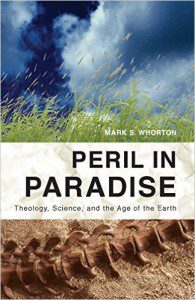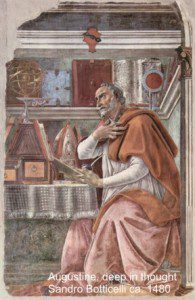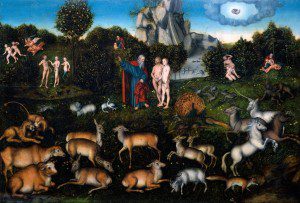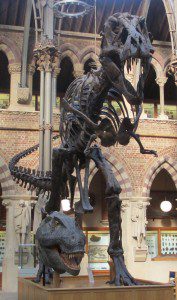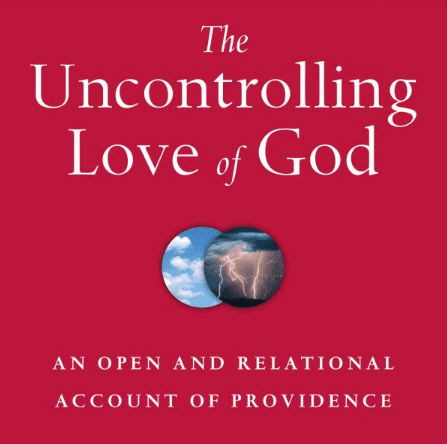 By Zane Witcher, university minister at the Highland Church of Christ in Abilene Texas.
By Zane Witcher, university minister at the Highland Church of Christ in Abilene Texas.
A couple of months ago, I exited out of a season many of you are familiar with. It was the closing of one chapter and the opening of the next. To walk out of the doors of higher education and to the world of working full time for the local church. It’s always interesting when you walk across that stage though, because at the same time, you watch all your other friends walk off in different directions to tackle the world as they see it. As I sat in a room full of uncomfortable hats and professors who look like they belong at Hogwarts, I thought to myself, “it’s crazy how in just a couple of years my friends’ faith have changed.”
They truly did walk in many directions. Many of my friends who at one time followed Jesus, won’t even step foot in a place where God’s people meet anymore. A plethora of my friends spend more time on Facebook and Twitter conversations about God, rather than partnering with God on the regular. Others though, seem to have wandered into the Kingdom of God in surprising and glorious ways. Then there are those who I have no idea where they are going to go. It just seems like they are going to go wander off into the depths of the world. Then there I am standing over in the corner, continuing in a ministry of serving the local church, which is an adventure in itself. It seems like we are all wandering. Maybe we are.
I mostly serve younger adults and university students at the local church. From time to time I will have parents, mentors, and professors come to me alerting me of the latest believer who seems to be “wandering.” Most of the time I hear this phrase, it is in the context of “wandering away from the faith.” The more time I spend with God’s people though, it seems like we are all wandering. Every time I preach, I feel like a stare out into a crowd full of faces who are wandering in all sorts of ways. Some just wandered in for the coffee. Some wandered merely out of habit. And some wandered in simply because they have no other place to go. It feels like we are all wandering….
A couple of weeks ago I picked up A.J. Swoboda’s new book The Dusty Ones, and couldn’t put it down. The title seems like a long commentary on Exodus, but it’s much more. Swoboda’s has a great ability to connect Scripture to today’s world. He is also quick to remind us of something we tend to forget: Scripture is written for wanderers by wanderers. The gospel is a story of wandering, because the God of the universe knows a thing or two about wandering….
The God of The Fitbit
Have you ever noticed some of life’s best thoughts and ideas are discovered on long walks? No wonder the people of God ventured across creation to know their Creator. Swoboda’s consistent reminder is the God of the exodus is known for wandering with his people. This doesn’t stop when you get to Jesus. You only have to read a couple of chapters in the gospels to know Jesus is a walker.
If Jesus could have had a Fitbit, he would have always blown past the amount of “work week hustle” steps he needed.
Jesus walked with crowds. Jesus walked with tax collectors. Jesus’ ministry even begins wandering into the desert. This was crucial, because when you enter the desert you no longer just know about God, you must learn to depend on Him.
“Salvation,” says Swoboda, “takes place in the wilderness.” It is in dry places. Places of the unknown and scarce resources is where the believer finds out what their heart truly loves. It is also the place where people tend to find what they truly need. Without walking through a desert or two, we don’t realize how to appreciate dwelling in the garden. This may be why the Scripture starts with a story of the garden, and ends with a picture of a garden. It takes time for God’s people to discover it’s beauty.
We Are Free To Move About The Desert
Swoboda takes time to talk about the word many of my university students tend to use in describing what direction of life they want to take. Freedom. They are hungry for it. Which is interesting because as Swoboda points out, God is all about freedom for his people. But a lot of times the freedom we seek leads to our destruction. When God delivers his people from Egypt, and they have freedom, it doesn’t take long for them to make a mess of things. The cost of freedom is the potential for disobedience. This is an understanding every believer develops eventually. Freedom, true freedom, is a process of walking with God. As Swoboda puts it,
“Freedom is not merely something you receive. It is something that must be lived into. Freedom is established in a heartbeat, but lived out and entered into over the course of a lifetime.”
This is beautiful news. But it takes a lot of walking with God and others to figure it out. The Dusty Ones reminds us there’s a difference between wandering with God and wandering away from God.
“I can’t stand to go to church anymore” is a regular conversation I have with college-aged students. Mostly this comes from students raised in church, but are struggling to make the faith their own. Often it’s from sincere doubts and wrestling with hard questions. But often it’s not. In my experience, sometimes the reason we can wander toward bitterness toward God and God’s people is because of sin that we have kept secret, sometimes even from ourselves.
In the name of freedom we trap ourselves with vice and lies.
Sometimes prodigal children walk out the door without realizing the greatest inheritance is being able to dwell with their Father. This is one of the biggest indicators of wandering away from God in Swoboda’s book. When we sin, our first tendency isn’t to sin in bigger ways. Our first response is we pull away from the local faith community and the people who love us the most and speak words of truth in our lives.
Although this is disheartening, I think Dallas Willard’s response is the best in finding peace when this happens in our faith communities. He says,
“We need to tell our younger people ‘Follow Jesus, and if you can find a better way than him, he would be the first to tell you to take it.’”
The first time I heard this, it was shocking, but the more I reflect on it, this is what wandering is all about. God at his core is good, which means we can trust that through the process of wandering. Wanders will realize living the ways of Jesus truly is the best way to live. Without wandering and discovering this through dry seasons, believers won’t really believe what they say they believe!
Walking To The Garden
Wandering involves wanderers to explore the tension of being a creation of God. As Swoboda explains, creation has a tension between creativity and boundary. On the one hand, God creates space for us to be creative. I mean Adam got to name an animal the platypus! One the other hand, we must remember we are invited to be creative within God’s boundaries. We’re talking about the same God who told the sea where to stop and the land where to start. He is also the God who says, “you can eat from every tree except…” This was a discovery process for Adam and Eve, and it is for us today. It is only when we learn, understand, and walk in this tension, that we experience a flourishing life with God.
Swoboda’s title may lead you to believe it’s all about dry and humid conditions of faith, but he takes time to mention one important detail of hope found in the book of Jeremiah. While God’s people, who he wanders with, are in exile, he gives them a bizarre command. He tells them to plant gardens in the place they live, even though they are nowhere near home (Jeremiah 29:5). This is not because God is a huge fan of Better Homes and Gardens, but because he is a God who plans on staying. He dwells where his people are wandering at the time. Patience is the attitude of God towards the wanderer. God knows it takes time to accomplish in our lives what he wanted in the beginning when humanity was in the garden of Eden. God isn’t afraid to get his hands dirty, and work on our hearts until we can plant deep roots of trust and intimacy with him.
A.J. Swoboda knows what it means to walk with people who are wandering because he is wandering himself. This book won’t collect dust if you’re in this season of life, or learning how to walk with others during their wandering of dry seasons in their faith.
It is by the grace of God that God does his best work in our wandering. It forms us. It shapes us. And it helps us realize where we truly belong.
And there is no greater joy than knowing no matter how far we wander, God could care less how many steps it takes to be reunited with him!


